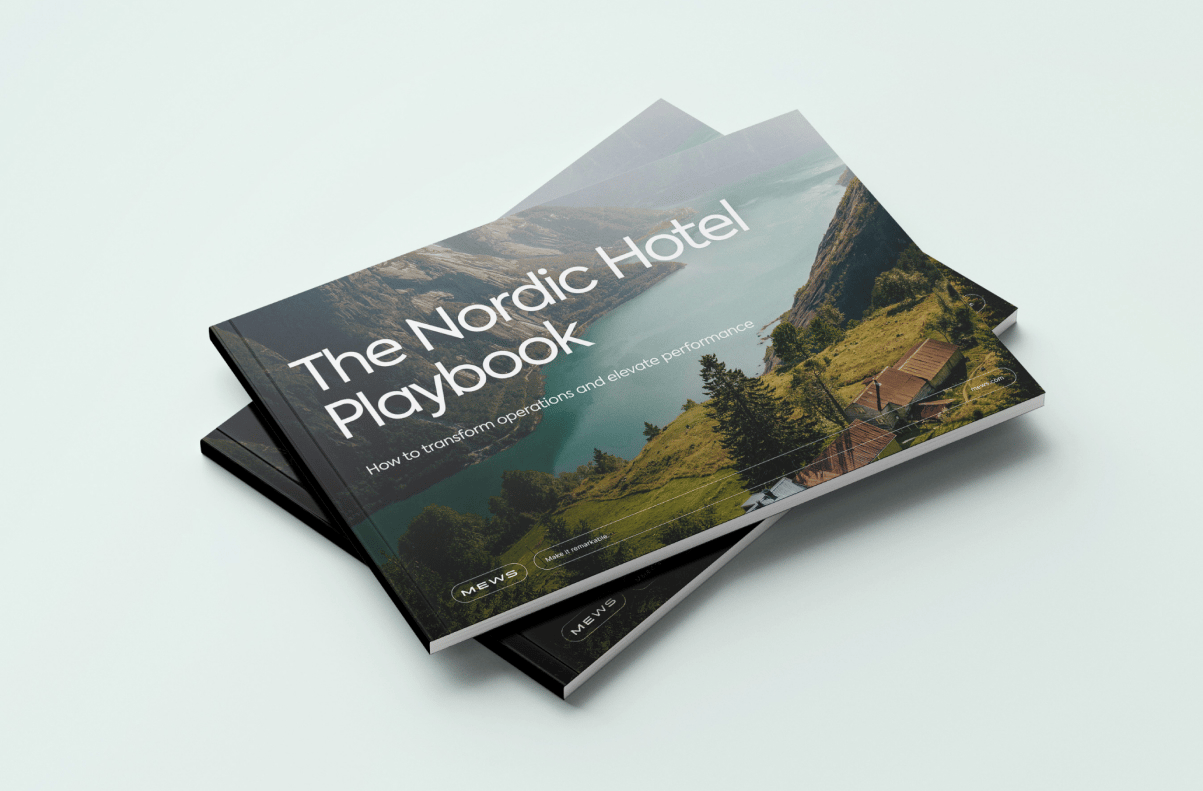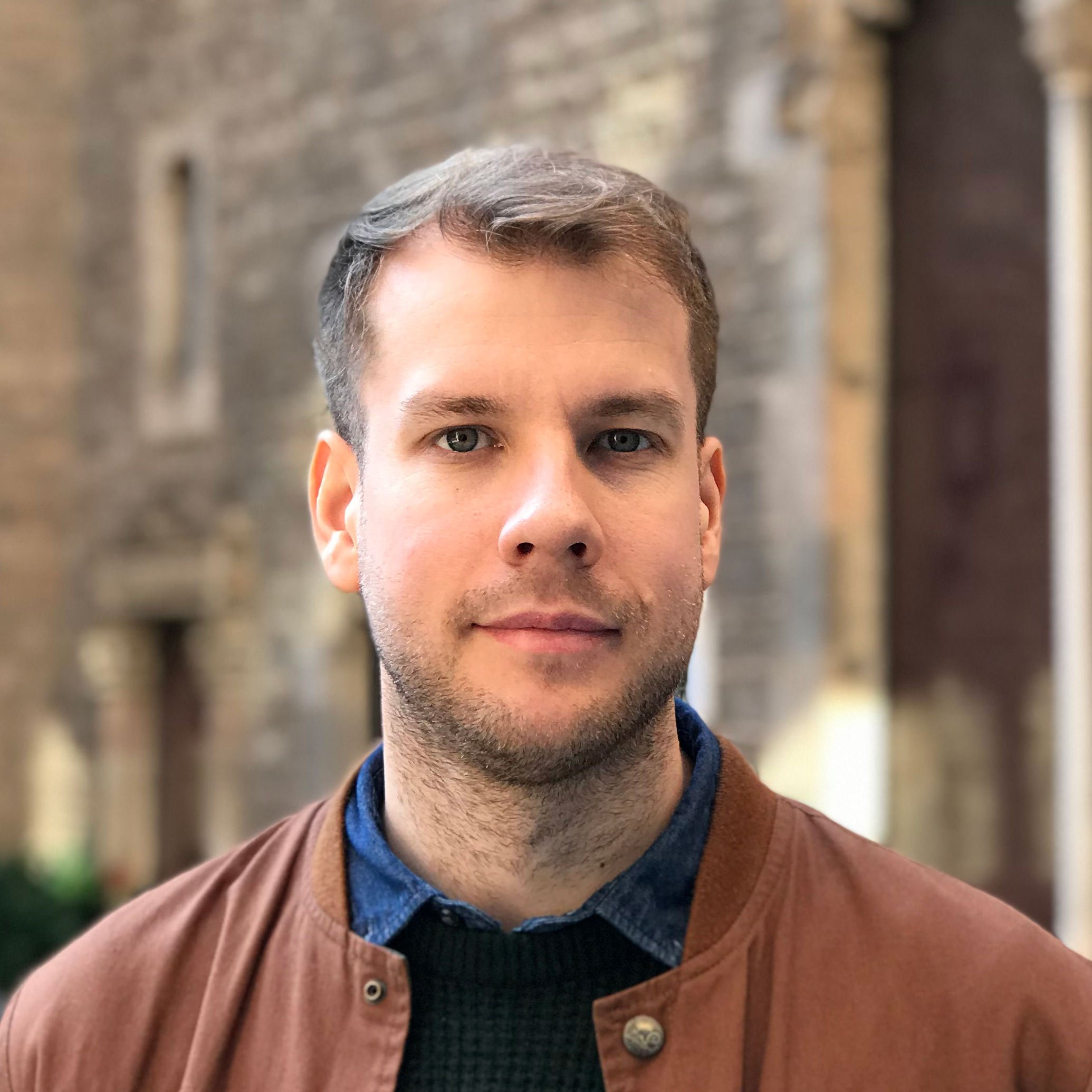Mews Marketplace recently reached a huge milestone: 1,000 certified partners.
This means that hoteliers get to choose from the very best solutions in hospitality technology, building a tech stack that’s perfectly suited to their individual needs. (And it's worth stating in case you didn’t already know: every partner can be integrated without any connection fees.)
To mark the special occasion, we sat down with our 1,000th certified partner: Dayuse. Dayuse allows hotels to sell their unoccupied rooms during the day, diversifying revenue and boosting their customer base.
David Lebée, Founder and CEO of Dayuse, and Matt Welle, CEO of Mews, were kind enough to answer these five questions about their origins, purpose and vision for the future. Enjoy.
Table of contents
How did Mews and Dayuse and begin?
Matt: Matt: Mews started 12 years ago when Richard Valtr, our Founder, was redesigning a hotel lobby in Prague. He realized that to provide truly great hospitality, staff shouldn’t be stuck behind desks and big computer screens. They should be engaging with guests, aided by a seamless, modern solution that boosts efficiency as well as the guest journey.
Nothing like that existed already, so he decided to build a new PMS that addressed all the problems created by onsite legacy platforms. This happened in a basement underneath an old town square in Prague; it was Richard, me and two developers, and we were drawing up system wireframes on a whiteboard.
We’ve come a long way since then: we now employ over 1,000 people and power over 5,000 customers all over the world.
David: I've always been passionate about hotels, and I've spent all my career in this industry, managing independent stakeholders and major hotel chains. Over the years, I keenly observed how consumption behaviors were evolving. In our fast-paced, urban world, a growing number of people were seeking private, secure spaces for a few hours, whether to unwind or to work.
Surprisingly, there was a gap in the market – hotels were underutilized during the day, despite the potential for significant profit by catering to a new local clientele. Some hotels were already selling daytime rooms but in an informal manner. This realization inspired me to create Dayuse over a decade ago, structuring the market in favor of hoteliers and becoming the first-ever platform for daytime hotel bookings.
We created a win-win solution that empowers hotels to generate incremental revenue by opening their empty rooms to a new segment of guests during the day, without compromising their traditional overnight business. On the client side, we provide access to new, comfortable, and secure spaces for a few hours.
Why are Mews and Dayuse a good fit?
Matt: Mews has always had an open philosophy regarding connectivity. We were the first PMS to open our APIs and over 1,000 integrations are now available to customers via Mews Marketplace.
Every brand and property has unique needs; a one-size-fits-all approach is not viable. That’s why we actively partner with the best hospitality tech solutions on the market, even if their functionality overlaps with what Mews also provides.
It’s perfect that Dayuse became our 1,000th certified partner, because they encapsulate our drive to help hoteliers diversify revenue by thinking beyond traditional occupancy measures like nights. We can see in that data that many bedrooms go unoccupied during the day, either because the room is unsold for an overnight stay or because a guest checks out in the morning and the next guest doesn’t arrive until the evening. Both are missed opportunities for hoteliers.
David: For over 10 years, Dayuse has been working to sell daytime hotel rooms and make them increasingly accessible, however, the hotel IT ecosystem wasn't designed for it. PMSs were initially designed primarily for selling overnight stays and not for managing or selling other assets or services.
We have strived to address the unique requirements of both major hotel groups and independent stakeholders. Our direct connectivity solutions, developed in close collaboration with prominent hotel chains, have proven effective. However, we recognize that independent establishments have distinct needs. The partnership between Mews and Dayuse was established to provide them with customized technical solutions that streamline day-to-day operations for hoteliers and their teams while also enhancing the customer experience by reducing wait times.
Mews and Dayuse both aim to revolutionize the hospitality industry. What are your main challenges?
Matt: For a long time, inactivity was hospitality’s biggest problem. The industry was very slow to change and there was a reluctance to try new tools and embrace new mindsets.
Traditional check-in and check-out times are a prime example of this. It doesn’t make sense for every guest to have to check in after 3 p.m. or check out before midday. It causes a lot of friction in hotels if we can’t help accommodate more flexible stay patterns, so this integration is a great step in the right direction.
Thankfully, attitudes throughout hospitality are finally changing, because they have to. Technology has advanced so much in the last decade and it’s become clear that hoteliers who don’t adapt will be left behind. Even so, the mindset problem of ‘we’ve always done it this way and it works’ persists for some.
It can be frustrating because we shouldn’t still need to have the conversation about why moving to the cloud is a great thing for your business – it should be taken as a given. Instead, we’d much rather be talking about how we can diversify the spaces and services you sell and how you can make practical use of AI in your daily operations.
David: Our industry presents a multitude of challenges, making it quite stimulating! We still need to educate hoteliers on the concept and benefits of booking daytime hotels as no other brand has ever done it. Last year, we refreshed our brand by designing a new identity and website to inspire consumers to experience the endless possibilities of daytime hotels.
One of our challenges is to continue successfully expanding our markets, mainly in Europe and Asia. In the coming months, we will be partnering with our first hotels in Korea, New Zealand and Portugal. Adapting to diverse cultures while maintaining a consistent supply approach in the 27 countries where we operate remains a great challenge. It is imperative for us to tailor our offerings to local specificities and adapt our communication by using a customized tone of voice.
After a successful launch in a few major cities, we aim to pursue the development of our all-inclusive offers, Dayuse Daydream. We've been working closely with our partners to create tailored packages that range from food and beverages to exclusive access to amenities or specific services. We aim to elevate both our customers' experiences and our partners' revenue.
How do you envision the hospitality of the future?
Matt: Two key elements will shape the next few years in hospitality: the demand for increased flexibility and the implementation of AI. Both will have a big knock-on effect on guests and staff.
For staff, advances in hotel technology will liberate them from the monotonous tasks that were previously essential to their roles. Instead of inputting credit card details or staring at a screen trying to bring up a reservation with slow-loading software, they’ll be able to have real face-to-face conversations with guests.
This changes the role of front of house staff, who will move away from being administrators in favor of being experience curators, helping immerse guests in their stays. This means that interpersonal skills will once again become the most important part of the job, not the ability to use a complicated PMS.
For guests, this means experiences become more about being in the moment. And they’ll also become more personalized.
Our industry has always had a wealth of data, but AI makes it easier to analyze and generate tangible actions. This also pertains to pricing and use of services. Guests can be targeted with relevant offers, better aligning their desires to their reality, while also boosting hotel revenue.
David: I anticipate a growing trend where consumers will increasingly prioritize local experiences for a variety of reasons. These motivations include reducing their carbon footprint, managing their expenses more prudently, minimizing long-distance travel due to heightened conflict risks, the need for more frequent breaks, and increased demand for flexibility.
My vision of the hotel industry is based on the belief that customers want to pay a fair price based on their actual usage and time spent in a property. Why pay for access to a pool if they don't use it, or for a room starting at 3:00 PM when the guest won't check in until 7:00 PM? Personalization of the hotel experience is also essential, with themes tailored to each type of customer. For example, I believe hotels will increasingly cater to adults only, offering a peaceful and relaxing environment, as opposed to kid-friendly ones.
What are your ambitions for the next three years?
Matt: Ambition is one of the five Mews company values, so we have an incredible amount planned for the coming months and years.
One of the biggest areas for growth for hotels is selling additional spaces and experiences. Mews is already leading the way when it comes to enabling hoteliers with these tools, but we want to see a lasting shift to the default mindset of heads in beds.
In the past two years we’ve built lots of new functionality that makes it easier for hoteliers to diversify their revenue, including monthly billing (great for long stays and students) and hourly reservations (for spaces like parking or co-working).
This flexible inventory will ultimately transform experiences for guests and staff, helping hotels, apartments and hostels to become true community hubs.
David: Our ambition for Dayuse is based on our commitment to firmly root hotels within their local communities, seamlessly integrating them into the local landscape. Hotels, with their unique designs, themes, and facilities, have evolved beyond mere overnight accommodations. They have transformed into vibrant living spaces.
Dayuse's core mission is to empower local residents to embrace these spaces as their own, striving to ensure that within a decade, up to 25% of hotel revenues will be generated by a loyal local clientele. This not only helps reduce the hotel's carbon footprint by replacing travelers with this new segment but also positions it as a central figure in its neighborhood. This aligns with the recent trend of hotel chains evolving towards more lifestyle concepts and transforming into daytime living spaces rather than mere nighttime accommodations.
Explore Mews Marketplace to discover your next game-changing software. You can browse by functionality or search for any specific partner to discover more.

Author
Tom Brown
When Tom isn't creating outstanding marketing content for Mews, he writes fiction for himself. Either way, he only uses the best words.
Hospitality hot takes straight to your inbox
Sign up to our monthly newsletter for industry insights, product news, partner updates and more.

The Nordic Hotel Playbook
Download now

.jpg?width=624&height=555&name=Mews_x_DayUse%20hero%201245x1014%20(2).jpg)
.webp)